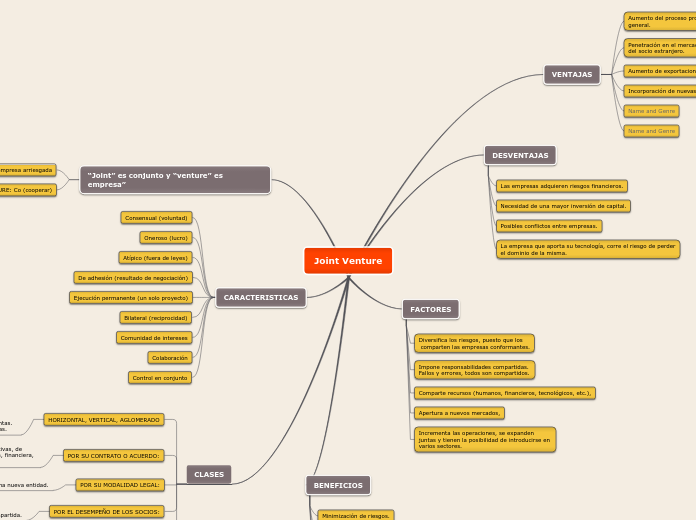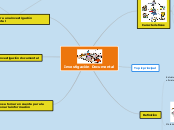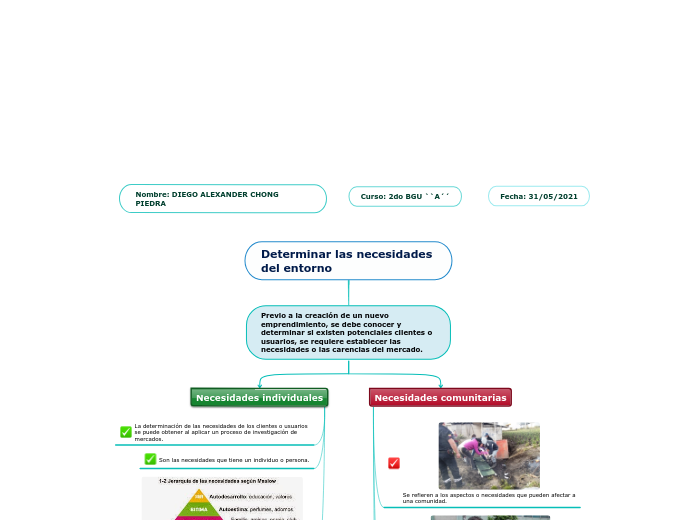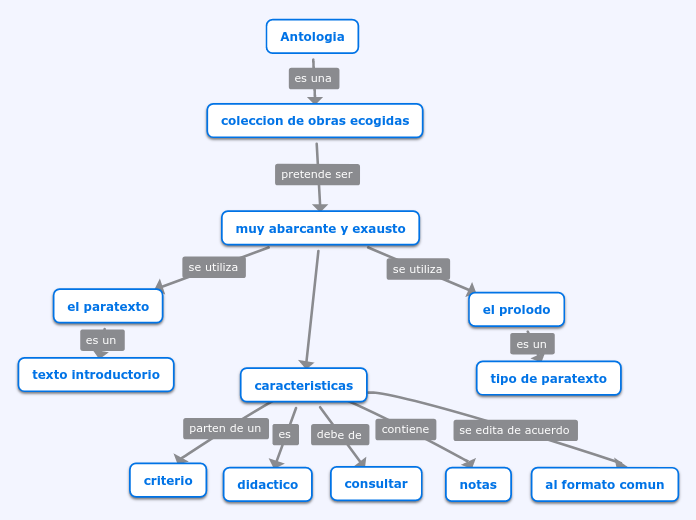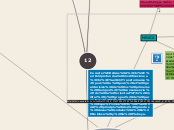Joint Venture
Who is your character?
Type in the name of the character you are going to analyze.
CLASES
Direct characterization refers to the process by which the writer tells the audience about the personality and looks of its character.
POR SU CONTEXTO GEOGRÁFICO:
A. Nacional.
B. Internacional.
POR EL DESEMPEÑO DE LOS SOCIOS:
A. Socio dominante.
B. Administración y operación compartida.
POR SU MODALIDAD LEGAL:
SOCIETARIA: Da origen a una nueva entidad.
POR SU CONTRATO O ACUERDO:
Para proyectos manufacturados, industrias extractivas, de construcción, proyectos comerciales, investigación, financiera, etc.
HORIZONTAL, VERTICAL, AGLOMERADO
What does the writer tell you about the character's personality and looks?
Add several quotes that support the direct characterization of your character. Look for descriptive adjectives, phrases or epithets.
Example: The little girl was wearing a burgundy silk dress, with black stockings. Her hair was like fire but tamed in a pony tale. Although young, she had such mature presence.'
Horizontales empresas que participan en la misma fase económica.
Verticales empresas que están en fases económicas distintas.
Conglomerados: empresas que tienen actividades distintas.
CARACTERISTICAS
Control en conjunto
Colaboración
Comunidad de intereses
Bilateral (reciprocidad)
Ejecución permanente (un solo proyecto)
De adhesión (resultado de negociación)
Atípico (fuera de leyes)
Oneroso (lucro)
Consensual (voluntad)
What is the character's role in the story?
Examples:
- Protagonist: the main character in a literary work
- Antagonist: the main character that opposes the protagonist in a literary work
- Flat character: reveals only one or two personality traits, and the trait(s) does (do) not change
- Round character - a well-developed character who demonstrates varied and sometimes contradictory traits
“Joint” es conjunto y “venture” es empresa”
VENTURE: Co (cooperar)
JOINT: Riesgo, peligro, empresa arriesgada
What were the events that affected the character's evolution the most?
Example:
- marriage
- birth of their first child
- death of a family member
- beginning of the war
- separation
BENEFICIOS
Es más fácil conseguir financiación.
El conocimiento es compartido.
Facilita la entrada a nuevos mercados.
Objetivos compartidos.
Minimización de riesgos.
FACTORES
Indirect characterization
The writer can also reveal his character's personality by presenting the character's thoughts, words, actions, and also the way other characters relate to them.
Incrementa las operaciones, se expanden
juntas y tienen la posibilidad de introducirse en
varios sectores.
Apertura a nuevos mercados,
Comparte recursos (humanos, financieros, tecnológicos, etc.),
Impone responsabilidades compartidas.
Fallos y errores, todos son compartidos.
Diversifica los riesgos, puesto que los
comparten las empresas conformantes.
DESVENTAJAS
La empresa que aporta su tecnología, corre el riesgo de perder el dominio de la misma.
Posibles conflictos entre empresas.
Necesidad de una mayor inversión de capital.
Las empresas adquieren riesgos financieros.
VENTAJAS
Name and Genre
Incorporación de nuevas tecnologías, patentes y marcas.
Aumento de exportaciones y la economía nacional.
Penetración en el mercado internacional a través de influencias del socio extranjero.
Aumento del proceso productivo, divisas, empleo y riqueza en general.
What is the name and genre of the literary work in which the character appears?
Examples:
- Novel: The Great Gatsby by F. Scott Fitzgerald
- Poem: The Raven by Edgar Allan Poe
- Drama: Macbeth by William Shakespeare
